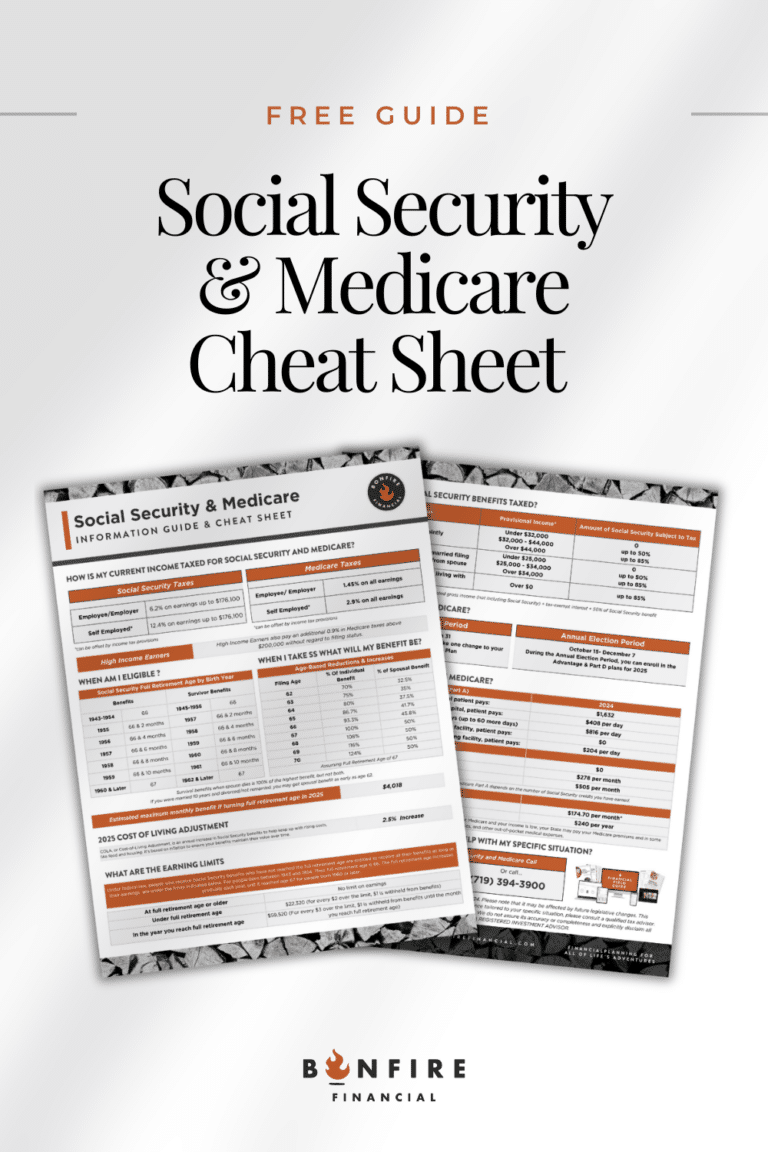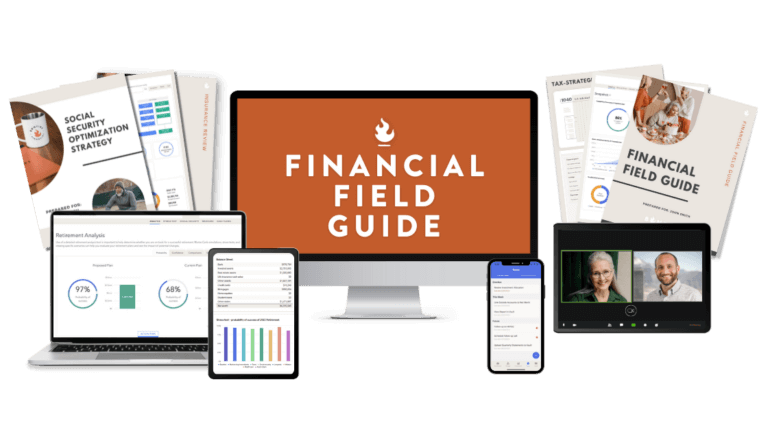What to Do After You’ve Maxed Out 401k Contributions
For high-income earners and diligent savers, few milestones feel as rewarding as realizing you’ve maxed out your 401k for the year. It’s a signal that you’re prioritizing your financial future and taking full advantage of one of the most powerful retirement savings tools available.
But once you’ve hit the annual contribution limit, an important question arises: what do you do next?
Should you explore Roth options? Open a taxable brokerage account? Look at real estate? Or maybe even consider advanced strategies like a mega backdoor Roth? Today we’ll explore all this and more.
Listen Now: iTunes | Spotify | iHeartRadio | Amazon Music
Understanding the 401k Contribution Limits
Before exploring what to do next, it’s important to understand what “maxing out your 401k” really means.
Each year, the IRS sets limits on how much you can contribute to your 401k as an employee. These limits vary depending on your age, and additional “catch-up” contributions are available if you’re over a certain age. Employers can also make contributions, such as matches or profit-sharing, which can significantly increase the total amount going into your account.
When people say they’ve maxed out their 401k, they’re typically referring to reaching the maximum amount they’re personally allowed to defer from their salary. That doesn’t always include employer contributions, which can add even more to your retirement savings.
Since these numbers are updated regularly, you’ll want to check the most current limits here: Current Contribution Limits.
Step One After Maxing Out: Consider a Roth IRA
Once you’ve maxed out your 401k, the next logical place to look is a Roth IRA.
With a Roth IRA, you contribute after-tax dollars, but your money grows tax-free, and withdrawals in retirement are also tax-free. This makes Roth accounts incredibly valuable for long-term planning.
Contribution & Income Rules
Roth IRAs come with their own annual contribution limits and income restrictions. High-income earners often find themselves phased out of direct Roth eligibility, but there’s a solution: the backdoor Roth.
The Backdoor Roth IRA Strategy
If your income is too high for a direct Roth contribution, you can use the backdoor Roth strategy:
-
Contribute after-tax dollars into a Traditional IRA.
-
Convert those funds into a Roth IRA.
This effectively sidesteps the income restrictions.
Caution: If you already have money in a Traditional IRA, SEP IRA, or SIMPLE IRA, the conversion could trigger unexpected taxes due to the pro-rata rule. Work with a professional before making the move.
The Mega Backdoor Roth: Supersizing Your Roth
For those who want to go beyond traditional Roth IRAs, the mega backdoor Roth may be an option.
This strategy involves making after-tax contributions inside your 401k and then converting them into Roth dollars, either within the plan or through a rollover.
Not every 401k allows this, so check your plan’s rules. If it’s available, it can dramatically increase how much money you can shift into tax-free Roth savings.
Taxable Brokerage Accounts
After you’ve fully leveraged your 401k and Roth options, a taxable brokerage account is often the best next step.
Why It’s Valuable
-
No contribution limits: You can invest as much as you want.
-
Investment flexibility: Stocks, ETFs, mutual funds, options, and more.
-
Liquidity: No early withdrawal penalties.
-
Bridge to early retirement: Money is accessible well before traditional retirement age.
Tax Considerations
-
Gains on investments held less than a year are taxed at regular income rates.
-
Gains on investments held longer than a year qualify for long-term capital gains rates.
A taxable brokerage account provides unmatched flexibility and can complement your retirement accounts beautifully.
Real Estate: Diversifying Beyond the Market
Once your 401k is maxed out, real estate becomes an attractive alternative for many investors.
Options include:
-
Rental properties for steady cash flow
-
House flipping projects
-
REITs (real estate investment trusts)
-
Syndications or real estate funds
Real estate adds diversification, offers potential tax benefits, and gives you a tangible asset. However, it also requires active management and carries risks like vacancies and market downturns.
Cryptocurrency: A Modern Diversifier
For investors who are looking for ways to expand beyond traditional markets, cryptocurrency can be an exciting and innovative option.
Bitcoin, often called “digital gold,” has established itself as a legitimate asset class over the past decade. It offers a way to diversify away from traditional stocks and bonds, while also providing exposure to a technology that’s reshaping global finance. Many investors see it not just as a speculative play, but as a long-term hedge against inflation and currency debasement.
Why Crypto Appeals to Investors
-
Decentralization: Unlike traditional assets, cryptocurrencies operate outside the control of central banks or governments.
-
Scarcity: Bitcoin has a fixed supply, which creates a built-in scarcity similar to precious metals.
-
Accessibility: Crypto markets operate 24/7, offering flexibility that traditional exchanges don’t.
-
Innovation: Beyond Bitcoin, blockchain technology is driving new opportunities in decentralized finance (DeFi), tokenization, and smart contracts.
Tax & Portfolio Considerations
Crypto is treated as property for tax purposes, which means gains are subject to capital gains rules. Like any investment, it comes with volatility—but that volatility is also what creates potential for outsized returns. For many high-income earners, allocating even a small portion of their portfolio to crypto can provide diversification and long-term upside.
In other words, crypto isn’t just a speculative side bet, it can be a strategic addition to a modern wealth-building plan.
Insurance Products: A Niche Option
I’ve talked at length about how insurance is not an investment; however, life insurance policies that build cash value, such as whole life or universal life, can sometimes be used as investment vehicles after your 401k is maxed out.
Pros
-
Cash value grows tax-deferred
-
Loans can be taken tax-free
-
Provides death benefit protection
Cons
-
Higher costs and fees
-
Complexity and potential restrictions
-
Usually only makes sense for very high-income earners in specific situations
For most people, insurance shouldn’t be the first place you look, but it may be worth exploring with professional guidance if you’ve exhausted other options.
Tax Efficiency: Today vs. Tomorrow
When thinking about where to invest after your 401k is maxed out, it helps to balance two tax goals:
-
Reducing taxes today through pre-tax contributions.
-
Reducing taxes tomorrow by building tax-free money in Roth accounts.
Most investors benefit from having a mix of tax-deferred, tax-free, and taxable accounts, giving them flexibility no matter what future tax policy looks like.
Suggested Order of Operations
If you’ve maxed out your 401k and are wondering where to go next, here’s a general roadmap many investors follow:
-
Contribute enough to your 401k to get the full employer match.
-
Max out your 401k contributions.
-
Fund a Roth IRA (or use the backdoor Roth if necessary).
-
Explore the mega backdoor Roth if your plan allows.
-
Open and invest in a taxable brokerage account.
-
Add real estate, Bitcoin, or other alternative investments.
-
Consider insurance-based strategies only if, and only if, they fit your situation.
Final Thoughts
Hitting the point where you’ve maxed out your 401k is an incredible financial milestone. It means you’re saving aggressively and building a solid foundation for retirement. But the journey doesn’t end there. From Roth accounts to brokerage accounts, real estate, and beyond, there are countless ways to keep your money working for you.
The best approach depends on your goals, income, and risk tolerance. For many, working with a financial advisor can help align these options into a personalized plan.
Next Steps
At Bonfire Financial, we specialize in helping high-income earners and diligent savers make the most of every opportunity. If you’ve maxed out your 401k and are wondering what to do next, we’d love to help you create a clear plan for building wealth beyond the limits.
👉 Book a meeting with us today to map out your next steps.
 Client Login
Client Login







